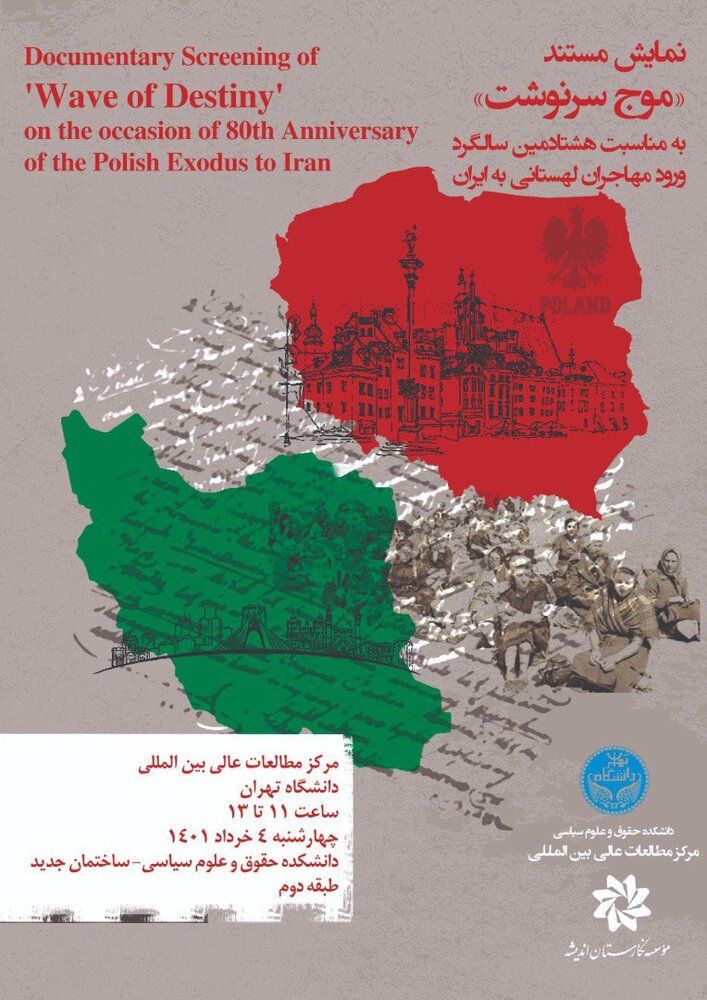“Wave of Destiny”: Story of the arrival of Polish refugees to Iran in 1942

TEHRAN - In 1942, approximately 120,000 Polish refugees arrived in Iran from the former Soviet Union.
The refugees were part of a larger exodus of between 320,000 to a million Polish citizens who were forced out of Poland during World War II and deported to the eastern parts of the Soviet Union, including Siberia.
During World War II Poland country was carved between the Soviet and the German invaders.
They left the Soviet Union for Iran where they awaited to migrate to Australia, New Zealand, South Africa, the United Kingdom, the United States and elsewhere.
An Iranian journalist, Amir Hoshang Danaei, recently made a documentary about the influx of Polish refugees to Iran called "Wave of Destiny".
Referring to his documentary, he tells the Tehran Times, "In the historical and political relations between Iran and Poland, the most important point was the arrival of Polish refugees in Iran during World War II.”
At the time, he said, Iran was not in a good shape, suffering from World War II, occupation, famine and typhus, but it hosted Polish refugees with open arms.
Danaei says of the 120,000 people who entered Iran at the time, now only a 90-year-old person lives in a nursing home in Iran.
For the first time the documentary was shown to students, professors, history researchers and the diplomats from the Polish embassy in Iran. It was shown at the Faculty of Law and Political Science of the University of Tehran on Saturday, May 28.
In Tehran, the refugees were accommodated in four camps. After the war, a few even decided to stay in Iran permanently, marrying Iranian spouses and starting families. Since they suffered hunger and diseases while held in the Soviet Union, over 2,800 Polish refugees died in Iran. There are several Polish cemeteries in certain Iranian cities, including Tehran, Bandar-e Anzali, Mashhad, Isfahan, and Khorramshar.
Polish schools, cultural and educational organizations, shops, bakeries, businesses, and press were established to make the Poles feel more at home.
A Polish cemetery in Tehran is the main and largest refugee burial site in Iran, with 1,937 graves.
Leave a Comment